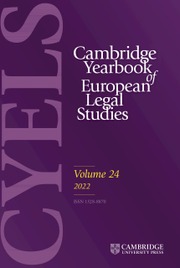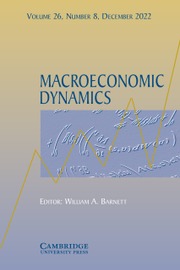The New Economic Governance of the Eurozone
A Rule of Law Analysis
Part of Cambridge Studies in European Law and Policy
- Author: Paul Dermine, Court of Justice of the European Union
- Date Published: July 2022
- availability: Available
- format: Hardback
- isbn: 9781009216616
Hardback
Other available formats:
eBook
Looking for an inspection copy?
Please email [email protected] to enquire about an inspection copy of this book
-
The Eurozone and the European Union have recently been confronted with a number of existential threats. The sovereign debt crisis and the COVID-19 pandemic have forced European decisionmakers to pass important reforms which have radically transformed the nature and scope of the Union's powers in the field of economic and fiscal policy. As the new economic governance of the Eurozone emerges as the main driver of integration in today's Europe, this book seeks to assess the solidity of the constitutional foundations supporting that system, and its compliance with the Union's core founding value: the rule of law. Using competence allocation, regulatory quality, access to external review and fundamental rights sustainability as analytical benchmarks, this book argues that the recent metamorphosis of Eurozone economic governance has not been accompanied by a parallel strengthening of its constitutional settlement, leading to a problematic misalignment between the Union's action and its governing principles.
Read more- Enables the reader to gain a clear and up-to-date understanding of the new economic governance of the Eurozone and the prominence it has gained in European integration
- Assesses the new economic governance of the Eurozone in the light of the Union's core founding principle, namely the rule of law, and provides the first-ever 'rule of law-based analysis' of the EU's economic and fiscal policy
- Provides policy recommendations and outlines avenues for change which might help correct the constitutional deficiencies identified in the analysis
- Examines the economic policy initiatives adopted in the context of the COVID-19 crisis and, most notably, the groundbreaking recovery plan 'Next Generation EU'
Customer reviews
Not yet reviewed
Be the first to review
Review was not posted due to profanity
×Product details
- Date Published: July 2022
- format: Hardback
- isbn: 9781009216616
- length: 376 pages
- dimensions: 235 x 156 x 26 mm
- weight: 0.76kg
- contains: 2 b/w illus.
- availability: Available
Table of Contents
Introduction
Part I. The New Economic Governance of the Eurozone: A Descriptive and Conceptual Account:
1. The new economic governance of the Eurozone: structure and functioning
2. Postcrisis economic policy coordination in the Eurozone: a conceptual appraisal from the governance perspective
Part II. The New Economic Governance of the Eurozone: A Rule of Law Analysis:
3. The new economic governance of the Eurozone and the competence allocation system
4. The internal quality of the new economic governance of the Eurozone: the case of fiscal policy rules
5. The new economic governance of the Eurozone and the (im)possibilities of external review
6. The new economic governance of the Eurozone and the sustainability of EU fundamental rights
Conclusion: the rule of law, the role of law and economic governance in the Eurozone.
Sorry, this resource is locked
Please register or sign in to request access. If you are having problems accessing these resources please email [email protected]
Register Sign in» Proceed
You are now leaving the Cambridge University Press website. Your eBook purchase and download will be completed by our partner www.ebooks.com. Please see the permission section of the www.ebooks.com catalogue page for details of the print & copy limits on our eBooks.
Continue ×Are you sure you want to delete your account?
This cannot be undone.
Thank you for your feedback which will help us improve our service.
If you requested a response, we will make sure to get back to you shortly.
×
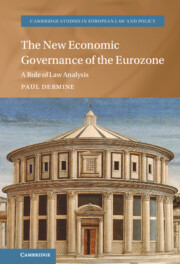
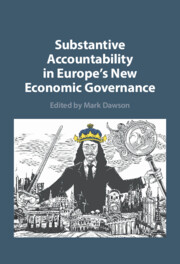

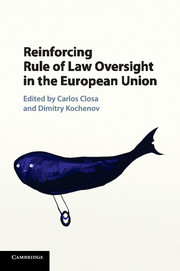
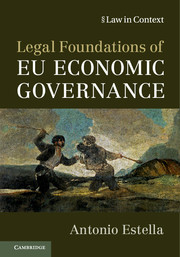
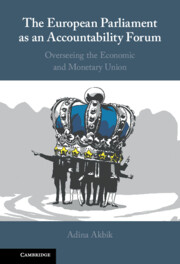
.jpg)
